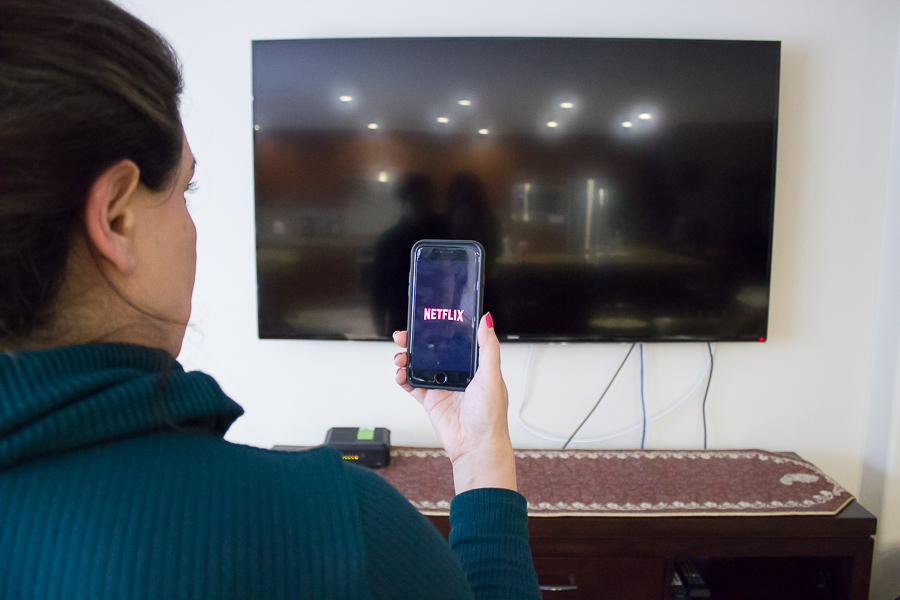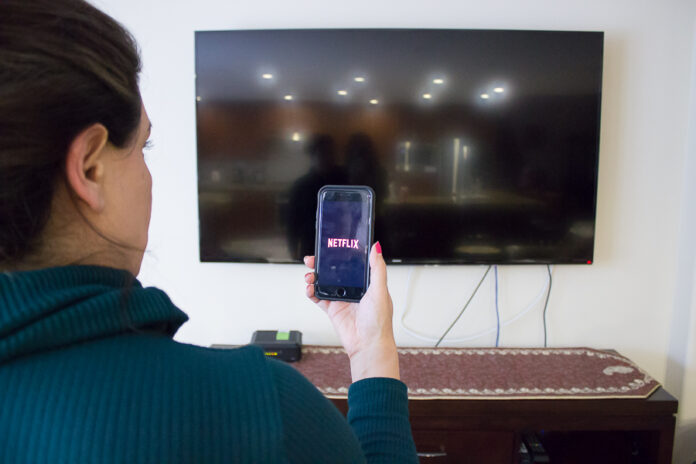
 What we love about Hollywood, politics or any other form of entertainment is now being taken on-the-go
What we love about Hollywood, politics or any other form of entertainment is now being taken on-the-go
It’s every generation’s destiny to create a type of slang word or phrase. For Millennials, one newfound verb is “Netflixing,” or “to Netflix.” The phrase has multiple meanings, really, but the base of which defines the verb as to watch television shows or movies on any device via the streaming app. In fact, cable television is becoming more and more outdated as online access to streaming companies like Netflix are becoming the norm. Additionally, the very idea of “television shows” will soon just become “shows,” with no need for the word television. For now, though, the smartphones and tablets we have in our hands reign supreme for watching our shows, news and all other forms of entertainment.
Research has indicated that the majority of young people are now watching less television and spending more time on handheld devices. If you’re between the ages of 18 and 34, you are basically watching about 20 hours of television a week — on an actual TV. However, Baby Boomers, who ushered in the ‘age of television,’ are watching about 40 hours or more a week. A substantial difference for back-to-back generations. So, what’s the main cause of the declining, decayed, decrepit death of television? It appears that Millennials’ habits and tendencies might provide us with the answer.
Imagine you’re at work, or you’ve been sitting through class all day, and you get a nice break in between. Are you going to use that time to refuel, get some food and cram in some study time? Of course not. You’re going to watch the next episode of Stranger Things or whatever Bill Nye is now doing. You’re able to accomplish this productive task because the chance that you have a smartphone, tablet or laptop on you is high. It’s a matter of convenience and accessibility. More Millennials are turning off the tube and relying on handheld devices to satisfy their addiction for movies and shows — simply because they can’t take the television with them to class or work. Millennials are accustomed to receiving their information and entertainment quickly, so it’s no surprise that we are seeing them leave the ancient, stationary form of television behind.
While watching an Academy Award-winning film or a CGI-heavy summer blockbuster on a four to six-inch screen seems to take away from the cinematic experience, the truth is that it’s easy, quick and convenient: the holy trinity for Millennials. However, the Boomers paint a different picture, especially now that they’re entering their 50s and 60s. The dominant portion of their free time is centered around the television. If they’re putting in more than 40 hours a week in front of the tube, it’s a full-time job of watching TV (#jealous). Now that’s not to say that Boomers would not have taken advantage of the technology we have today. One theory suggests that once Millennials reach an older age, they will be more inclined to watch television as much as Boomers do now. However, there isn’t research to support such a theory yet.
What we love most about Hollywood, politics or any other form of entertainment is now being taken “on-the-go” to accommodate a busy young generation that has been adapting to technological advances since they were born. This is not a trend or a fad. This is a change in social behavior that is directly linked to variables and changes within the environment. We have all heard that song “Video Killed the Radio Star,” right? Well, it’s still technically true, only that song was meant to exonerate the progressive climb that television has made. It’s not hard to imagine that in several decades we will be yet again looking in the rearview mirror to see just how far television has fallen.
Written by: Brody Wayne Fernandez — bwfernandez@ucdavis.edu
Disclaimer: The views and opinions expressed by individual columnists belong to the columnists alone and do not necessarily indicate the views and opinions held by The California Aggie.



